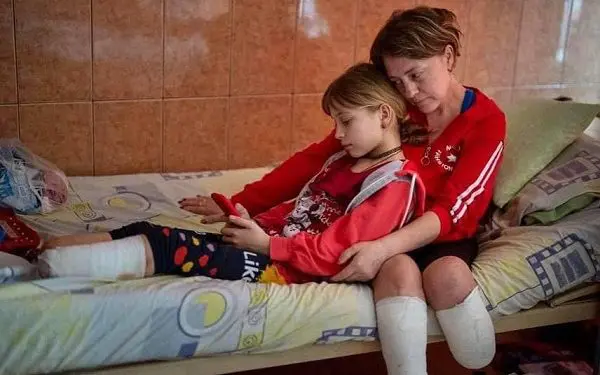By Emilio Morenatti and Elena Becatoros Associated Press
There is a cost to war — to the countries that wage it, to the soldiers who fight it, to the civilians who endure it. For nations, territory is gained and lost, and sometimes regained and lost again. But some losses are permanent. Lives lost can never be regained. Nor can limbs, reads the text published in abcnews.go.
And so it is in Ukraine.
The stories of the people who undergo amputations during conflict are as varied as their wounds, as are their journeys of reconciliation with their injuries. For some, losing a part of their body can be akin to a death of sorts; coming to terms with it, a type of rebirth.
For soldiers wounded while defending their country, their sense of purpose and belief in the cause they were fighting for can sometimes help them cope psychologically with amputation. For some civilians, maimed while going about their lives in a war that already terrified them, the struggle can be much harder.
For the men, women and children who have lost limbs in the war in Ukraine, now in its third month, that journey is just beginning.
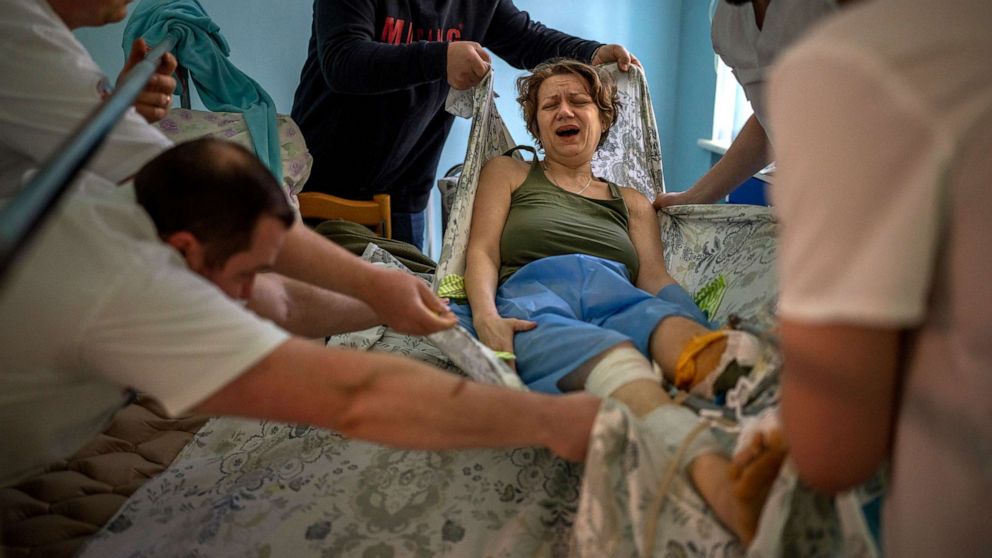
OLENA
The explosion that took Olena Viter’s left leg also took her son, 14-year-old Ivan, a budding musician. Her husband Volodymyr buried him, along with another boy killed in the same blast, under a guelder rose bush in their garden. Amid the fighting, they couldn’t get to the cemetery.
“How am I going to live without Ivan? He will remain in my heart forever, like the fragment that hit him,” she said. When she’s alone, Olena cries.
Bombs rained down on Olena’s village of Rozvazhiv, in the Kyiv region, on March 14. Ivan and four others died; Olena was one of about 20 who were wounded.
At first, “I was thinking, ‘Why did God leave me alive?’” said Olena, 45, her soft voice breaking. Hearing Ivan was dead, she begged a neighbor to get his rifle and shoot her.
But Volodymyr pleaded with her, saying he couldn’t live without her.
Now, she endures the devastation of the loss of her child, and the physical pain of the loss of her leg, cut below the knee.
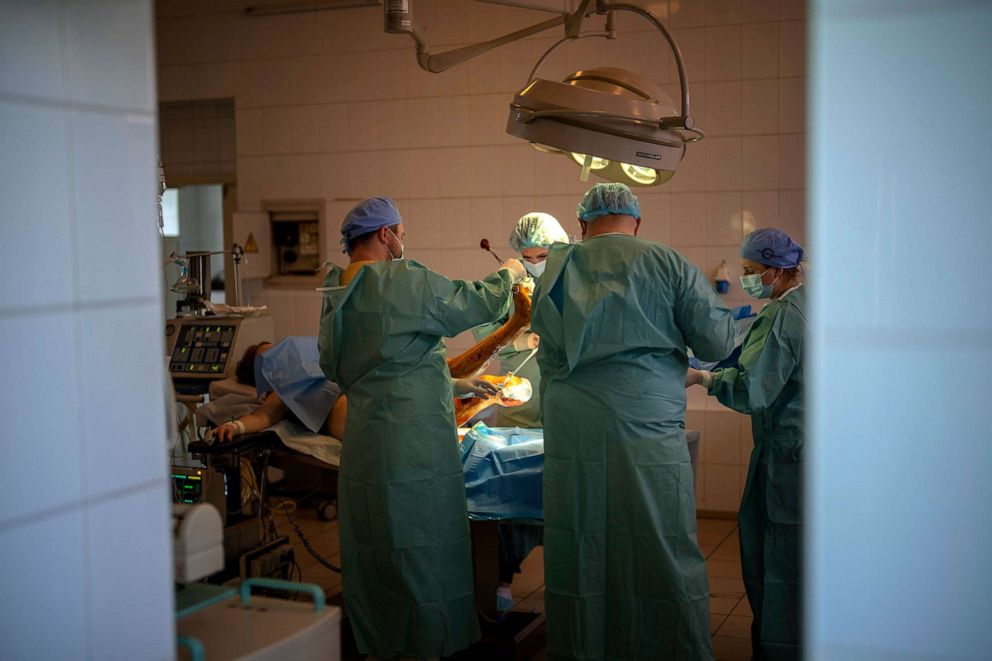
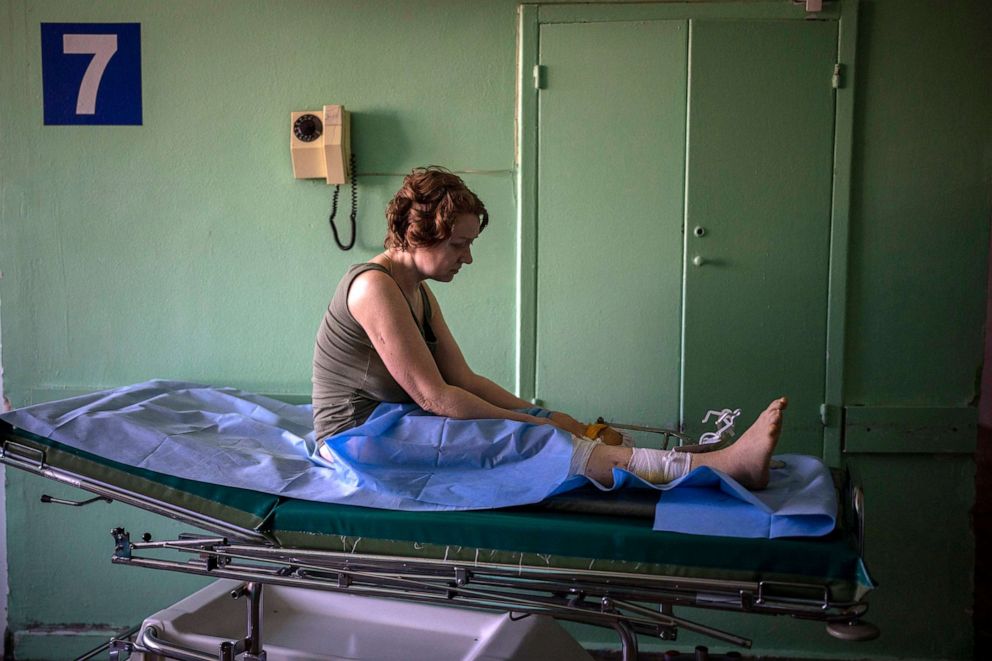
“Every day I get used to some new type of pain. I am thinking what kind of new pain will I see in the future,” she said.
She has yet to accept either of her losses.
“I am still not accepting myself as I am now,” Olena said. “I really liked to dance. I was doing sports. I don’t know, I need to learn.” She can’t yet imagine what it will be like to walk again.
Perhaps, Olena said, her life was spared because she was meant to do something, to help others, perhaps as a volunteer or by donations to a music school in Ivan’s memory.
“At the moment, I don’t know what I would want to do. I should keep searching. … I must learn how to live. How? I do not know yet.”
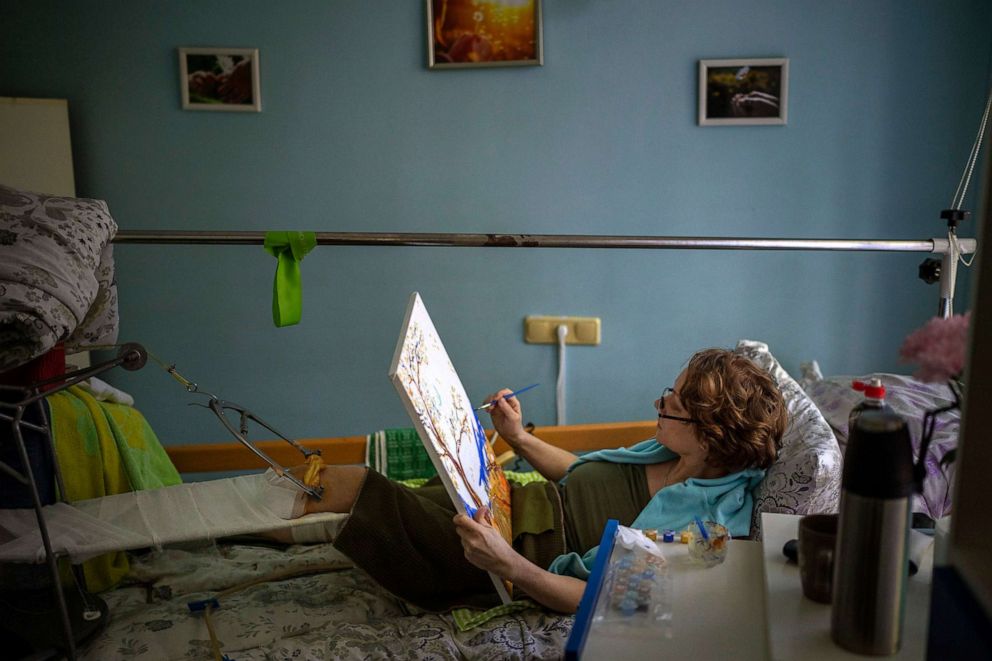
———
YANA AND NATASHA










